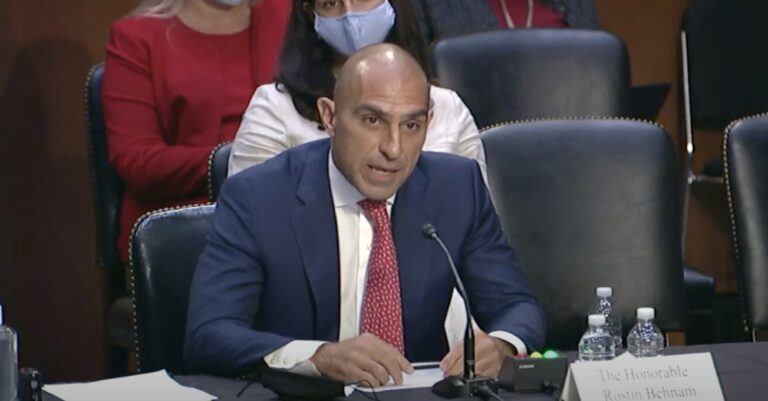On Wednesday (September 28), Rostin Behnam, the Chairman of the Commodity Futures Trading Commission (CFTC), talked about regulation of the crypto market.
Rostin Behnam, who was nominated by U.S. President Joe Biden, was “sworn in as the CFTC’s 15th Chairman on January 4, 2022 after being unanimously confirmed by the U.S. Senate.” Previously, he “served as CFTC Commissioner since September, 2017.” Behnam was elected as Acting Chairman — by the members of the Commission — on 21January 2021.
His comments were made during a fireside chat at New York University (NYU) School of Law.
According to a report by CoinDesk, Behnam told attendees that “growth might occur if we have a well-regulated space” and that “Bitcoin might double in price if there’s a CFTC-regulated market.”
Like Galaxy Digital CEO Mike Novogratz, Behnam believes that regulatory clarity will bring in institutional investors:
“These incumbent institutions in the crypto space see a massive opportunity for institutional inflows that will only occur if there’s a regulatory structure around these markets...
“Non-bank [crypto] institutions thrive on regulation, they thrive on regulatory certainty, they thrive on a level playing field… And they may say otherwise, they might bicker about the type of regulation – but what they love most is regulation because they are the smartest, the fastest and the most well-resourced. With those attributes, they can beat everyone else in the market.“
On May 16, during an interview with Becky Quick, co-anchor of CNBC’s “Squawk Box“, the CFTC Chair had this to say about the regulation of cryptoassets and in particular about the roles of the U.S. Securities and Exchange Commission (SEC) vs the CFTC in this area:
“This is a little bit of an old age issue between the CFTC and the SEC. We have a great relationship historically. We continue to communicate and work together. We have a lot of common registrants, but within this space, in my view, it makes sense for commodities to be regulated by the Commodity Futures Trading Commission, and securities to be regulated by the SEC, and within the sphere of digital assets and the coins, which make up thousands and thousands, there are naturally going to be some commodities and some securities.
“And in my view, it makes sense to sort of parse through the two, and figure out where we can place each, and it’s going to be difficult because from a legislative standpoint, again, given what I said earlier, given the novelty of some of these coins and the technology, we’re going to have to figure out what will constitute a security under the traditional securities law and what would constitute more of a commodity so that we can regulate appropriately given the two different legal structures.“
As for which cryptoassets should be considered commodities (and therefore fall under the jurisdiction of the CFTC) and which should be considered securites (and therefore fall under the jurisdiction of the SEC), the CFTC Chair said:
“Well, I could say for sure Bitcoin, which is the largest of the coins and has always been the largest regardless of the total market cap… is a commodity. So Ether as well — I’ve argued this before, my predecessors have as well — is a commodity.
“So there may be, in fact, hundreds, if not thousands of security coins, but there are plenty of commodity coins. And I think it makes sense as we’ve done historically to make sure that each agency has jurisdiction over commodities and securities respectively.“









